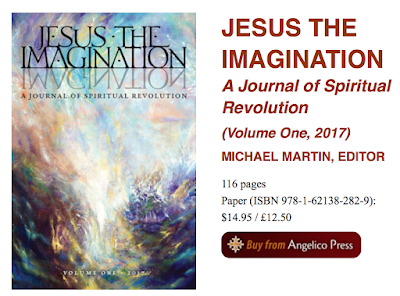The concept of soul, for Westerners, is usually just our immaterial personality. But other cultures have more complex notions.
For example, the Ancient Egyptions thought we had seven “souls,” but what they meant by soul is a concept nowhere in all of Western mentality. For instance, the first three souls are immortal, they can be wounded, but not killed, once the “vessel” dies, they go back to heaven and incarnate into a new vessel. They are somewhat related to the Greek “Fates,” they give a life direction, it’s general script. There’s also the last “soul” - the remains, the memory, completely mortal.
The 5th “soul” is what Westerners generally identify as our soul's guide - the Double. He is our guide to the Western Lands in the Afterlife. Often identified in Christianity with ones Guardian Angel. But the point is that we have many parts to ourselves, not all belonging to our essential identity.
Without culture, we are no better than the animals. With immigration issues Americans are presently going through an idenity crisis - what makes an American ? Is the Japenses Shinto Priest newly arrived just as “American” as the fifth generation Wasp ? And what exactly is American culture ? Sure there’s Hawthorne, Whitman, folk and Blues, but is it distinct enough to be an actual culture ? Or is American culture-less - nothing beyond pornography and McDonalds ?
What unites an American culture to an American people ?
Jim Kalb wrote in his essay, “Anti-Racism,” one of the clearest statements of the issue I’ve ever seen, and I’ve often quoted it:
“The seedbed for culture is the complex of pre-rational connections a people develops through long common history—in other words, ethnicity. While ethnicity and race are not the same, they cannot be altogether separated because both are consequences of a people’s long life in common. Since all actual cultures are tied to ethnicity, and therefore at least somewhat to race, to give culture free play is to permit race to have significance.”
The Anarchist Kieth Preston explains that the American imperialism recognizes only three kinds of identity: the consumer, the taxpayer, and the professional or worker.
“No other form of identity is acceptable within the context of this particular paradigm. Not ethnicity, not nationality, not race, not culture, not religion, not history, not tradition, not community, not ancestry, not family, and apparently not even gender. Instead the ambition is to create masses of helots that function merely as deracinated, working, consuming, tax-paying, obedient drones without any connection to the past, no regard for the future, no folklore, no distinctiveness, and no serious aspirations.”
I believe Julius Evola’s triune conception of race is useful here.
1) At the spiritual level, the people of the Occident share a common root in the 'mythical past', which renders us very similar in our spiritual orientation. There are certainly variations, but as I make the case in my essay, I think the unilateral embrace of Christianity amongst Occidentals is hinting at this spiritual-racial commonality. While the spiritual race cannot summon a great unity among Occidental peoples without an extremely and temperamental careful balance (largely religious institutions, etc.), it also is not the cause of divisions between us. While religions may differ and this may even lead to conflicts as it has done, the conflict is not one fought on a spiritual but rather a political or doctrinal plane.
2) The race of the character would mark our individual ethnic extractions and their sub-strata. Because this is again, metaphysical, new races can actually emerge, which is what I would argue you represent, a new branch of the root, which is why you don't feel a commonality with people who share your genetic lineage in the Old World. By this same process, we can see how we have Slavs divided into Serbs, Poles, etc. which occurred long ago. This is the real basis for division, and why 'pan-whitism' is so problematic as I describe. Those who only see the bodily race will be incredibly puzzled at the current state of affairs on the global right, unless they can accept that there is a race of the character as well, which is what divides us.
3) The bodily race, is the least important in terms of its impact. It is the parallel of the physical to the metaphysical, and only becomes noticably prominent on the grand racial level, when we look at physiological and neurological differences between negroids, mongoloids, etc. IQs and such things are definitely not negligible, but I don't think they are the reason we have racial conflicts, nor are they a particularly good basis for racial solidarity. We definitely prefer people who look like us on instinct, but our ultimate loyalties and other such things will depend far more heavily on the spiritual and character aspects of racial identity.
I think its obvious that point 1 has been nullified by the march of secularism and the decline of civilization. Point 2 is under constant attack in some places more than others with claims like 'Swedish people don't really exist!'. Point 3 is ignored into oblivion and is claimed to be 'socially constructed' despite obvious scientific facts.
Part of ones soul, I claim, is the ‘Spirit’ of one’s ancestors. Primal peoples have always honored their ancestors spirits, and in Christianity we likewise do so, in Orthodoxy during All Souls Saturday.
Loosed from any real connection to the past or future, which is becoming more and more uncertain, modern man experiences what Zygmunt Baugman called ‘Liquid Modernity,’ we have no historical consciousness, we have no roots in the soil, the ideas we sacrifice for today might be overturned by tomorrows generation.
Just as the “capitalist” uproots entire communities and all their members, absconding with their identity and trying to replace it with a religion of money, the “communist” ideology uproots entire cultural identities, trying to replace it with abstract ideology, egalitarianism, an identity based on class or faithful to some universalist theory,in favor of a large homogeneous global market.
Along with Multiculturalism man is severed from history, his ancestral spirit, and is wondering about with a chunk of his soul missing.
E. Michael Jones claims that the real source of ethnic identity in America is religion NOT race, and that Social engineering turned Catholic ethnics into white people :
Ironically, 'the Catholic Church condemned the ethnics who defended their neighborhoods as “racists” when in fact it was the racists who were trying to destroy the neighborhood.'
"Race is a pseudo-identity, like Harley-Davidson riders and NASCAR dads, which has always served the interests of the ruling class, no matter how much that class would demonize any one particular race at any one particular time. So the three main ethnic identities in America are Anglo-Protestant, Pan-European Catholic, and Eastern European Jewish...
"Racism is, in other words, a function of lack of community. It is also an argument for the ethnic parish, which the Catholic Church abandoned at the moment the federal government began promoting large-scale black migration from the South to the cities of the north. As the Irish Jesuits at the Gesu parish in North Philadelphia argued in the 1930s, Black Catholics could have preserved their faith and identity better if they had been given an ethnic parish of their own rather than attempting to integrate them into the ethnic parishes which had already been established for other nationalities. The same is true now for the Irish and the descendants of the other European ethnics now living in a place like Southern California. If the Church had allowed these people to retain their own communities, they would not now be abandoning Catholicism for white racism.
White nationalism now takes Catholic ethnics out of a real group, one of America’s three main ethnic groups, and gives them a pseudo-identity as “white people” which prevents them from linking up with their Mexican co-religionists, who are on their way, via the Triple Melting Pot, to becoming co-ethnics as well.”
Multiculturalism by separating Race, ethnicity, and religion, for some deracinated universal man, has created a schizophrenic humanity.
According to ‘Fifth political Theory’ Americans are more properly understood as Transhuman. They likewise invoke Evola :
Our prototype transhumans of the “white” variety are thus lacking in what Julius Evola describes as the “demon” element in their individual. This is not the same as the evil entity that Christianity conceives of but instead “the deep force that originally produced consciousness in the finite form that is the body in which it lives during its residence in the visible world." Without any spiritual depth beyond a crude materialism that focuses purely on achieving comfortable consumption levels for all races, the prototype transhuman has nothing it belongs to or emanates from, and so naturally cannot reproduce itself effectively. Evola adds that:
“In many traditions the demon corresponds to the so-called double, which is perhaps a reference to the soul of the soul or the body itself; this ‘double’ has also often been closely associated with the primordial ancestor or with the totem conceived as the soul and the unitary life that generated a stock, a family, a gens, or a tribe, and therefore it has a broader sense than the one given to it by some schools of contemporary ethnology. The single individuals of a group appear as various incarnations or emanations of this demon or totem, which is the “spirit” pulsating in their blood; they live it and it lives in them, through transcending them, just as the matrix transcends the particular forms it produces out of its own substance” .
Our prototype transhumans are people without history and ancestry, or rather they reject their history and ancestry as evil. From a presentist point of view, the very act of being born to European or Eurocolonial heritage is an original sin within the context of achieving Progress. The response is as we have seen to become nothing in terms of having an organic identity; they identify as an ideologue and not as a member of a tribe, saying “I am a liberal,” or “I am a progressive,” or something of that nature. Rather than being expressions of a “demon” element in the flesh, they are corruptions from a traditionalist point of view. "
So, do Americans have enough of a connection to the spirit of their ancestors to be truly ensouled ? P.T. CARLO HERE suggests not :
"There is no past (which is not a Liberal past) that the American can romanticize, no holy redoubt to retreat into. America is the only nation without a past; only the future lays before the American. Its ethos is the eschatology of the road, of the continual unfolding and violent conquering of a fertile frontier. When the American seeks the solace of a sacred grove he finds only the shade of the strip mall. The American Reactionary may set his spade to work in hopes of finding fertile soil somewhere beneath this endless superficiality, but his quest will only yield him asphalt. In America there is no soil to find beneath the asphalt, there is only more asphalt.
In this superb essay, P.T. Carlos talks about how Americans have no deep roots or tradition, the author mentions a theorist, Dugin, who says there are two ways to remedy it, go back to a European identity or grow a new individualist religious American identity.
My preference is that a people gather ‘round the Chalice of Christ, communing with their ancestors by participating in the same rituals, prayers, spoken creeds, bodily movements, done across centuries, connecting them to the past dead, the future progeny, and the family of the Saints.























